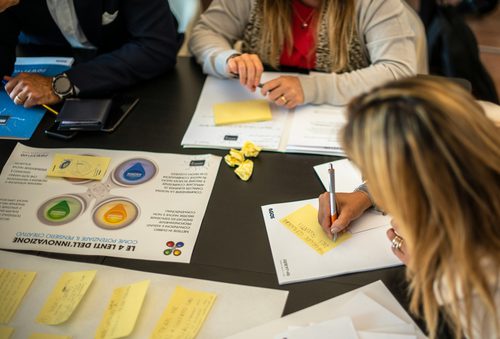Project Outputs
This project has now concluded. Read the full report and the research summary.
A collaboration between University College London's Everyday Disasters and Violences Research Group and ECPAT UK will work on a project investigating the risk of human trafficking for unaccompanied asylum-seeking and refugee children in Home Office operated hotels.
Unaccompanied minors and trafficked children have long gone missing from local authority care at high rates. More recent – and controversial – policy development is using Home Office-operated hotels to house unaccompanied children. However, reports suggested that since July 2021, in six Home Office operated hotels that have accommodated 4,600 asylum-seeking children in East Sussex, nearly one in ten children and young people have gone missing. Over a third of the approximately 200 missing children were from the project study area Brighton and Hove.
In July 2023, 154 children were still missing, all boys and one child as young as 12 years old. Investigative journalists tracked the missing children to 18 other police forces, with evidence of trafficking and human exploitation. These missing episodes need urgent attention with the Illegal Migration Act and the recent High Court ruling that deemed that the Home Office was acting unlawfully by housing unaccompanied refugee children in hotels.
According to research, traffickers of unaccompanied children use two main recruitment settings, Home Office operated hotels and foster care settings. Some of these young people maintain contact with smugglers who facilitated their cross-Channel journeys which increases their risk of be exploited. Reports also suggest children are used as indirect recruiters for their friends and relatives.
The research project will explore the trafficking risks and experiences of unaccompanied refugee and asylum-seeking children in Brighton and Hove. We will look into the different factors at play in trafficking from the Home Office-operated hotels and foster care settings, and what measures can be taken to prevent trafficking, mitigate risks and improve early intervention.
The study will involve interviews with 20 unaccompanied asylum-seeking and refugee children and young people aged 16-25 about their trafficking experiences and observations, and another 10 interviews with support workers and experts. The research team will also undertake desk and legal analysis to align the findings from the interviews with the current legal and policies, particularly in the context of the Illegal Migration Act, and offer recommendations on how to improve prevention, early intervention, and safeguarding around unaccompanied children.
Research team: Dr Sonja Ayeb-Karlsson (PI, Institute for Risk and Disaster Reduction, University College London); Tyler Valiquette (Institute for Risk and Disaster Reduction, University College London); Dr Ella Cockbain (Department of Security and Crime Science, University College London); Ms Laura Duran, Every Child Against Trafficking (ECPAT UK); Dr Hannah Haycox (Institute for Risk and Disaster Reduction, University College London), Dr Yulia Ioffe (Institute for Risk and Disaster Reduction, University College London).
This research was funded by an open funding call on prevention of modern slavery. The Modern Slavery PEC is funded and actively supported by the Arts and Humanities Research Council.





